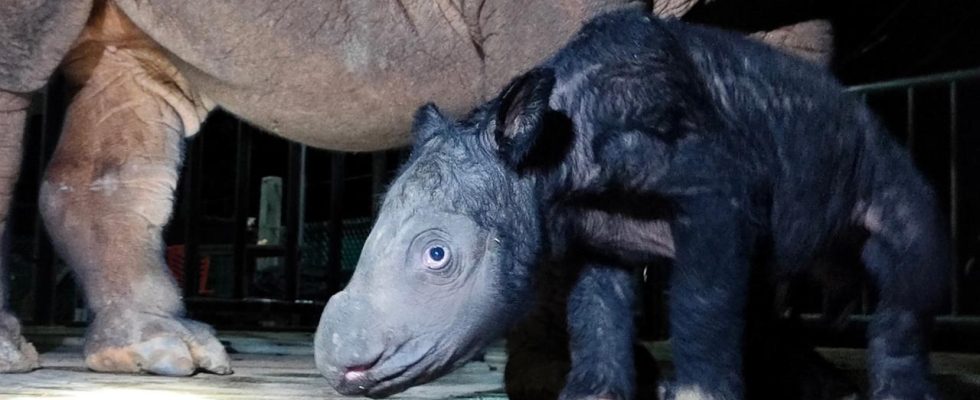25 kilograms, hairy body and threatened with extinction: a Sumatran rhinoceros has been born in Indonesia. According to environmental organizations, there are only about 80 individuals left of the smallest rhinoceros species.
Animal rights activists are happy about the birth of a rare Sumatran rhinoceros in an Indonesian national park. The mini rhino was born on Saturday on the 460th day of his mother’s pregnancy – ten days earlier than the expected date. It doesn’t have a name yet. According to Indonesian Environment Minister Siti Nurbaya Bakar, it weighs 25 kilograms.
The male calf is the second rhino baby born this year in the Way Kambas National Park in the east of the island of Sumatra, the local environment ministry said. His parents are seven-year-old Delilah, who was born in the park, and the bull Harapan, who was born in 2007 at the Cincinnati Zoo in the USA. In 2015 he found a new home in Way Kambas. According to the ministry, no Sumatran rhino lives outside Indonesia since then. Successful births of these endangered animals are rare.
The still unnamed male Sumatran rhino calf was born weighing 25 kilograms and is one of the smallest rhino species.
Only about 80 living specimens remain worldwide
The Sumatran rhinoceros is the smallest of the five rhinoceros species that exist worldwide. Unlike other species, the animals’ bodies are hairy. They have two horns and have a large repertoire of vocalizations, such as squeaking, humming and snorting. Sumatran rhinos (Dicerorhinus sumatrensis) were once native to much of Southeast Asia and eastern India.
Hunting of the animals and the destruction of their habitats have caused the population to shrink to an estimated 80 individuals today. The Sumatran rhino is classified as critically endangered by the International Union for Conservation of Nature (IUCN). “This rhino is so rare that few people have ever seen one in the wild,” the Sumatran Rhino Alliance writes on its website. The alliance includes, among others, the Indonesian government, the WWF, the International Union for Conservation of Nature (IUCN) and the International Rhino Foundation.

